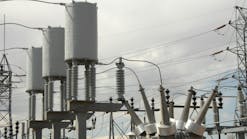U.S. Senator Joe Manchin Releases Bill to Expedite Energy Projects
U.S. Senator Joe Manchin (D-WV) yesterday released the details of a bill meant to speed up the construction of electric transmission, natural gas pipelines and other energy infrastructure. As part of the Inflation Reduction Act signed into law on Aug. 16, 2022, Senator Manchin secured a commitment to pass a comprehensive permitting reform package before the end of the fiscal year on Sept. 30, 2022. Permitting reform will increase American energy production to provide relief at the pump and on energy bills while bolstering national and international security, according to Manchin.
“No matter what you want to build, whether it's transmission pipelines or hydropower dams, more often than not, it takes too long and drives up costs," Manchin said.
The bill includes energy permitting provisions that would designate and prioritize projects of strategic national importance. The President would designate and periodically update a list of at least 25 high-priority energy infrastructure projects and prioritize permitting for these projects. The criteria for selecting designated projects includes: reducing consumer energy costs, improving energy reliability, decarbonization potential, and promoting energy trade with allies.
The bill calls for overhauling the U.S. Energy Department's existing process for designating national interest electric transmission corridors, according to an S&P Global Market Intelligence report. That process was established under the Energy Policy Act of 2005, a statute that required the DOE to make corridor designations after conducting regular transmission congestion studies to identify where new transmission is needed most. However, no corridor designations have been made to date, the report said.
Instead of relying on grid studies, the bill would authorize the DOE secretary to make "national interest" designations for individual transmission projects. It would "replace DOE’s national interest electric transmission corridor process with a national interest determination by the Secretary of Energy that allows FERC to issue a construction permit," according to a fact sheet from Senator Manchin's office. It would require FERC to ensure costs for transmission projects are allocated to customers that benefit, and allow FERC to approve payments from utilities to jurisdictions impacted by a transmission project.
"It would make electric-transmission a matter of clear national policy," Travis Kavulla, vice president of Regulatory Affairs at NRG Energy, said on Twitter.
“We know we need to expand and upgrade the nation’s electrical grid to fully realize the renewable energy growth expected under the Inflation Reduction Act. Yet, it remains very difficult to get new transmission lines sited, permitted and built in this country, with successful efforts rare and typically taking more than a decade," said Gregory Wetstone, president and CEO of the American Council on Renewable Energy (ACORE). "Senator Manchin’s bill includes provisions that will help streamline the transmission approval process, improving our ability to meet our nation’s decarbonization goals by better connecting our key renewable resources to our largest population centers.”
The bill faces opposition among some environmental groups who are afraid of the review process being hampered, as well as a provision that the Mountain Valley Pipeline be completed: It seeks to require the relevant agencies to take all necessary actions to permit the construction and operation of the Mountain Valley Pipeline and give the DC Circuit jurisdiction over any further litigation.
Other opposition comes from Republicans. Senate Minority Leader Mitch McConnell (R-Ky.) gave Manchin’s plan an unfriendly reception Sept. 21. He called it “permitting reform in name only,” implying it is far too unambitious, according to story in Oil & Gas Journal (a sister publication of T&D World). McConnell instead promoted a permitting reform bill introduced Sept. 12 by Sen. Shelley Moore Capito (R-W.Va.). "But her bill includes provisions known to be nonstarters among Democrats, including provisions to codify Trump administration guidelines under the National Environmental Policy Act and to codify Trump regulations governing the jurisdiction of the Clean Water Act. She would also give states control over energy development on federal lands within their boundaries," Oil & Gas Journal reported.
Editor's Note: Larry Gasteiger, quoted in this article will be speaking at the T&D World Conference and Exposition on Oct. 7 at 11:30, on the "Transmission Planning for a Cleaner and More Resilient Grid" panel. Gasteiger will have just attended FERC’s Technical Conference on Transmission Planning and Cost Management the day before, will debrief the audience on some of the most important takeaways from that conference. In addition, they will discuss other major challenges and opportunities transmission system owners and operators encounter as the electric power industry decarbonizes, U.S. population shifts and Black Sky events continue to push electricity infrastructure to its limits and beyond. This final conference session is worth sticking around for.



